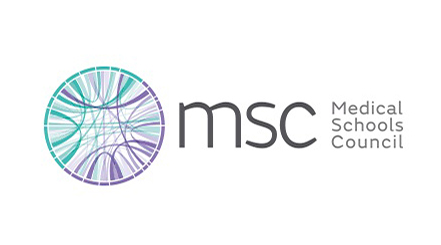World-leading UK medical research showcased in new publication
29.01.15
The Medical Schools Council today publishes Health of the Nation: The impact of UK medical schools’ research, which reports the very best medical research happening across the UK and its impact.
The examples of research cover the spectrum from clinical practice to global health and the economy. They are taken from medical schools’ submissions to the Research Excellence Framework (REF) 2014, which revealed its results last month. Those results showed that, of the examples of research submitted across all subjects, the impact of clinical medicine is unmatched in the percentage of its research which achieved the highest rating of world-leading 4* grade and in its overall ‘research power’ (determined by multiplying average grading by the number of staff whose work was included).
A large base of staff across clinical medicine combined with a leading grade point average in their submitted work is evidence of research that is significant in both quantity and quality. Health of the Nation: The impact of UK medical schools’ research tells some of the stories behind these fantastic results, for example:
- Research at the University of Bristol into infant death syndrome or ‘cot deaths’ saw a change in advice to parents and a 54% fall in related deaths in the UK.
- Large-scale inoculation programmes in Asia against Japanese encephalitis, emanating from research at the University of Liverpool, have led to an estimated 214,000 deaths avoided.
- Swansea University’s research in using laser and intense pulsed light technologies to treat skin conditions has created partnerships with major companies and led to what the Welsh Government calls ‘an exemplar of the resurgence of UK specialist manufacturing’.
Professor Iain Cameron, Chair of the Medical Schools Council, said:
‘The life sciences sector is the UK’s third largest contributor to economic growth with a turnover of over £50 billion. It is made up of many different kinds of organisation but the expertise that drives the sector comes from universities, the researchers who go on to work in companies large and small, and of course in the crucial work being done in the universities themselves.
‘Medical schools play a key role here. In the UK we have the best academic institutions working with the best research companies and supported by an unrivalled research infrastructure from basic discovery to clinical impact, funded by the Medical Research Council, the National Institute for Health Research, the Wellcome Trust and others in the medical charities sector. It’s crucial for the nation’s health and wealth that investment in medical research and the broader life sciences sector is sustained.’
Professor Chris Day, Chair of the Research Excellence Framework’s Clinical Medicine Sub-Panel and Deputy Chair of the Medical Schools Council, said:
‘The Research Excellence Framework’s focus on impact has shown how the benefits of medical research can be quantified in powerful terms, such as in lives improved and saved, costs cut to the Health Service and money put into the economy. But those numbers don’t mean anything without understanding the work that brought them about.
‘Some of the case studies in Health of the Nation will be known to the public but many will not, and these are equally innovative and making huge benefits to the population right now, both in the UK and globally.’
Professor Sir John Tooke, President of the Academy of Medical Sciences, said:
‘Medical science benefits society in numerous ways, drawing on many disciplines both clinical and non-clinical. The REF impact case studies reveal how diverse and substantial those benefits are, positively influencing the nation's health and economy.’
Link: Health of the Nation: The impact of UK medical schools' research
-ENDS-
Notes for editors:
- The Medical Schools Council represents the interests and ambitions of UK medical schools as they relate to the generation of national health, wealth and knowledge through biomedical research and the profession of medicine. For further information about the work of the Medical Schools Council, see www.medschools.ac.uk.
- The results of the Research Excellence Framework were published on the 18th of December 2014. Information and results can be found on this website: www.ref.ac.uk.
- For more information on this press release, please contact Edward Knight, Communications and Website Officer, on 020 7419 5427, or edward.knight@medschools.ac.uk.

